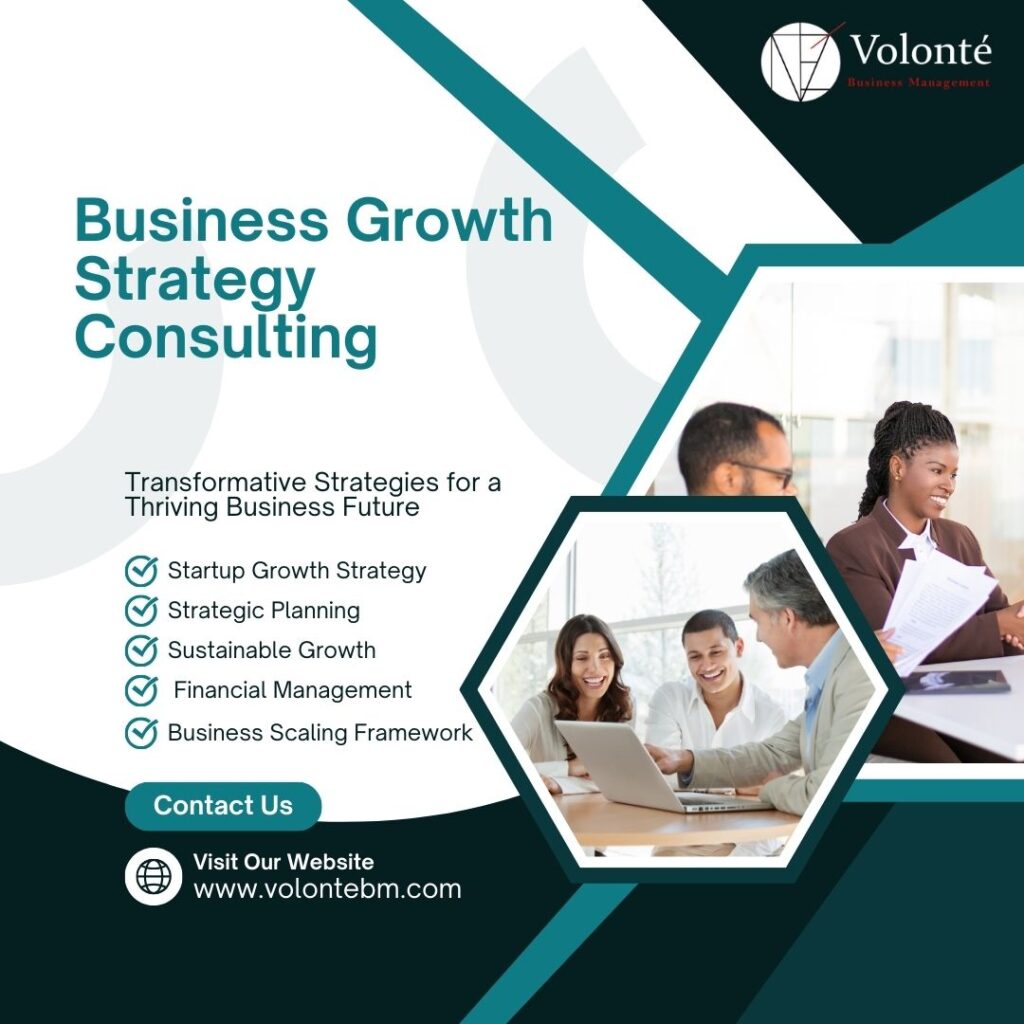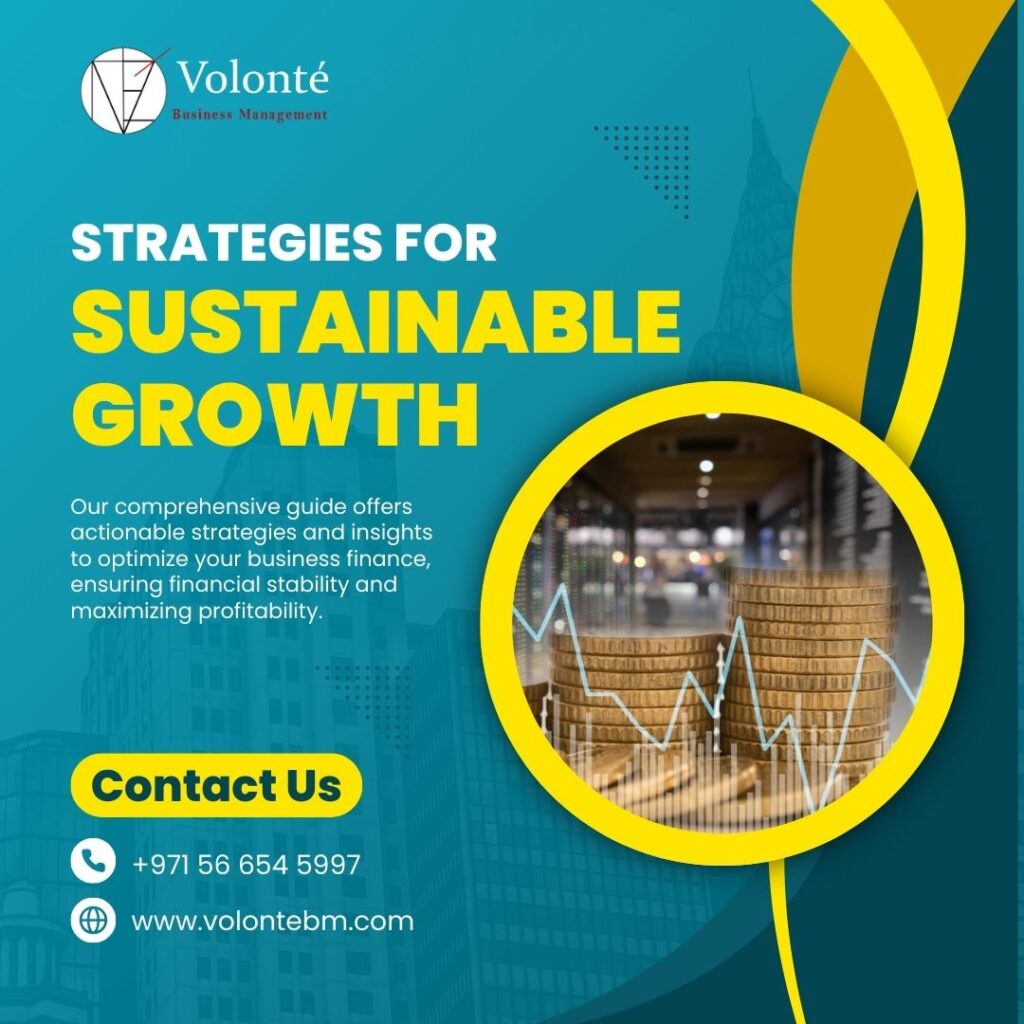Unlocking Startup Potential: Consulting, Strategy, and Sustainable Growth

In the competitive world of startups, achieving success requires more than a groundbreaking idea—it demands strategic planning, operational efficiency, and expert guidance. Whether you’re a tech entrepreneur or a traditional business founder, services like startup consulting, growth strategy consulting, and business bottleneck elimination can help transform challenges into opportunities. Let’s explore how these essential elements can help startups scale, optimize, and thrive. The Role of Startup Consulting in Driving Success Startup consulting provides expert insights and tailored solutions to help businesses address challenges and seize growth opportunities. From early-stage guidance to scaling support, startup consultants play a pivotal role in navigating the complexities of entrepreneurship. Key Benefits of Startup Consulting: Strategic Focus: Develop a clear roadmap for sustainable growth. Problem-Solving Expertise: Identify and resolve operational inefficiencies. Scalable Solutions: Build frameworks that support long-term expansion. Startup consultants not only offer advice but also help implement solutions, ensuring measurable results. Growth Strategy Consulting: A Game-Changer for Startups Scaling a business requires a deliberate approach. Growth strategy consulting helps startups create actionable plans to achieve their expansion goals while avoiding common pitfalls. Key Components of Growth Strategy Consulting: Market Research: Understand target audiences and emerging trends. Goal Alignment: Define clear, realistic objectives for growth. Execution Framework: Develop step-by-step plans to ensure success. With the right growth strategy, startups can achieve rapid yet sustainable business growth. Tech Startup Consulting: Addressing Unique Challenges For tech-based businesses, the journey to scalability comes with its own set of challenges. Tech startup consulting provides specialized expertise to help companies innovate, adapt, and thrive in a competitive landscape. Why Tech Startups Need Consulting: – Scalability Solutions: Build systems that can handle rapid growth. – Market Expansion: Identify opportunities for product and service innovation. – Operational Optimization: Streamline processes for maximum efficiency. Tech startup consultants bridge the gap between technological capabilities and business needs, ensuring startups can scale effectively. Business Bottleneck Elimination: Clearing the Path for Growth Operational bottlenecks are one of the most common barriers to success. Effective business bottleneck elimination ensures that your startup operates at peak efficiency, laying the groundwork for scalable growth. Common Bottlenecks and Solutions: Resource Limitations: Optimize allocation of time, budget, and manpower. Process Inefficiencies: Automate repetitive tasks to save time and reduce errors. Scaling Challenges: Develop frameworks to support growing operations. Eliminating bottlenecks helps startups focus on innovation and customer satisfaction, key drivers of sustainable business growth. Financial Management for Startups: Building Stability Strong startup financial management ensures that your business has the resources it needs to grow. From cash flow monitoring to cost control, effective financial strategies are critical for achieving long-term goals. Conclusion The combination of startup consulting, tech startup consulting, growth strategy consulting, and business bottleneck elimination can transform any startup into a thriving enterprise. By addressing challenges head-on and leveraging expert guidance, startups can unlock their full potential and achieve sustainable business growth.
Achieving Sustainable Business Growth: The Importance of Strategy and Financial Management

In the dynamic world of startups, sustainable business growth is more than just a buzzword; it’s the ultimate goal. However, achieving this requires more than enthusiasm—it demands meticulous planning, sound financial management, and rigorous growth strategy validation. Whether you’re in the initial stages of your venture or scaling operations, understanding these key elements is crucial to ensuring long-term success. The Role of Growth Strategy Validation in Business Success A growth strategy validation process ensures that your plans are not only ambitious but also realistic and actionable. Without this critical step, even the most innovative ideas can falter due to unforeseen challenges. By validating your strategy, you align your goals with market conditions, customer needs, and internal capabilities. Steps for Effective Growth Strategy Validation: Market Analysis: Assess the demand for your product or service. Competitive Benchmarking: Understand how you compare to competitors. Feasibility Testing: Evaluate whether your resources can support your goals. Customer Feedback: Gather insights to refine your approach. Growth strategy validation is not a one-time task—it’s an ongoing process. Regularly revisiting and refining your strategy ensures that your business remains agile and responsive to changes. Startup Financial Management: Building a Strong Foundation Financial management is the backbone of any successful startup. Poor financial planning can lead to cash flow problems, resource misallocation, and ultimately, business failure. Mastering startup financial management enables founders to make informed decisions, maintain stability, and invest wisely for growth. Key Principles of Startup Financial Management: Cash Flow Monitoring: Regularly track your income and expenses to avoid shortfalls. Budgeting: Allocate funds strategically to prioritize high-impact areas. Revenue Diversification: Explore multiple income streams to reduce risk. Cost Control: Identify areas where you can reduce expenses without compromising quality. Sound financial management not only supports daily operations but also strengthens your ability to scale effectively, paving the way for sustainable business growth. Sustainable Business Growth: The Long-Term Vision Startups often focus on rapid expansion, but true success lies in achieving sustainable business growth. This means growing at a pace that your operations, finances, and market can support, ensuring longevity and resilience. Pillars of Sustainable Business Growth: Scalable Operations: Build systems and processes that can handle increased demand. Customer Retention: Focus on long-term relationships rather than one-time sales. Innovation: Continuously improve your offerings to stay relevant in the market. Ethical Practices: Incorporate environmental, social, and governance (ESG) principles to build trust and loyalty. By balancing ambition with practicality, sustainable growth ensures that your startup thrives in the long term, not just in the short term. Aligning Strategy, Finance, and Sustainability To achieve lasting success, startups need to align their growth strategy validation, startup financial management, and sustainable business growth efforts. Here’s how these elements work together: – Validated Growth Strategies Drive Financial Decisions: A well-validated strategy provides a clear roadmap, enabling precise financial planning and resource allocation. – Financial Stability Supports Sustainability: Strong financial management ensures you have the resources to invest in sustainable practices and scalable operations. – Sustainability Enhances Strategy and Financial Outcomes: Building a sustainable business attracts loyal customers and investors, fueling both strategic and financial growth. Practical Tips for Startups Invest in Financial Tools: Use software to automate budgeting, forecasting, and cash flow monitoring. Test and Iterate Your Strategies: Continuously refine your approach based on data and feedback. Balance Growth and Stability: Avoid overextending your resources in pursuit of rapid expansion. Engage Experts: Consider consulting with professionals for growth strategy validation and financial planning. The Competitive Advantage of a Holistic Approach Startups that integrate growth strategy validation, startup financial management, and sustainable business growth gain a significant edge over their competitors. They are better equipped to navigate challenges, adapt to market changes, and build lasting success. Conclusion Achieving sustainable business growth is not about shortcuts or quick wins—it’s about laying a solid foundation through growth strategy validation and effective startup financial management. By aligning your strategies, finances, and sustainability goals, you create a business that not only grows but thrives. Take the time to validate your strategy, manage your finances prudently, and prioritize sustainable practices. With this holistic approach, your startup will be well on its way to long-term success.
Startup Growth Strategy: Key Strategies for Success

While setting up a business is quite exciting, the long-term success story involves all the necessary care in planning and making informed decisions. A well-charted Startup Growth Strategy will help you march ahead from an idea to a well-established business. Properly concentrating on Strategic Growth Planning with assurance on Growth Strategy Validation lays the road for sustainable growth for any startup. This blog highlights some of the key strategies to flourish your startup, which you can learn if your business is still at an early stage. What is a Startup Growth Strategy? A Startup Growth Strategy describes the road to scaling up one’s business. In general, it describes how to capture customers, obtain revenue, and scale your operations. It is also a strategic plan that will define and detail specific methods and channels of growth matched for the specific goals one pursues and the marketplace that may be targeted. Effective growth strategies address critical questions like: How can we attract customers and retain them? Which markets to target? How do we optimize our resources for long-term growth? All the answers lie in Strategic Growth Planning and the validation of those strategies to ensure they are in line with your objectives. The Importance of Strategic Growth Planning The backbone of any successful startup is strategic growth planning, whereby realistic goals are set based on an analysis of market trends and further developed into actionable steps for growth. Clarity and Direction A solid growth plan helps you prioritize efforts and allocate resources effectively, keeping your startup on track. Market Understanding By researching your industry and competitors, you can identify gaps and position your startup uniquely. Risk Mitigation You can forecast possible obstacles and plan solutions for them well in advance. Investor Confidence Investors are more eager to invest in startups if their growth plans are planned and clearly presented. Steps to Build a Powerful Startup Growth Strategy Set Your Goals Set clear goals: specific, measurable, attainable, relevant, and time-bound. Be it revenue attainment or entering new markets, the goals determine the strategy. Know Your Audience Know who your audience is, survey them through analytics and feedback sessions to learn what they want and provide it to them. Focus on Scalability Design your business model and processes to handle growth but not at the cost of quality or efficiency. Competent Team Surround yourself with competent people who could gel with your vision for mutual growth. Leverage Technology Adopt and leverage tools and platforms that automate, enhance productivity, and elevate customer experience. Monitor and Adapt Constantly track your progress; be flexible in shifting focus if one or another of your strategies doesn’t yield the expected results. The Role of Growth Strategy Validation Once you’ve developed your growth plan, the next step is Growth Strategy Validation. This process ensures that your strategy is practical and achievable by testing its assumptions and evaluating potential outcomes. How to Validate Your Growth Strategy Gather Data Use customer feedback, market research, and performance metrics to assess whether your strategy aligns with market needs. Pilot Programs Try ideas on a small scale to determine strengths and weaknesses before going into a full launch. Consult Experts Mentors, advisors, or consultancy firms can be consulted to help in fine-tuning the strategy. Evaluate KPIs Success will be measured with key performance indicators showing the progress toward the goals. Common Challenges and How to Overcome Them Even with a solid Startup Growth Strategy, there are bound to be challenges. Here are a few of the common ones and ways to overcome them: Lack of Resources At times, startups have minimal budgets. Prioritize those activities that will have maximum impact. Outsource peripheral activities. Fast-moving Market Be agile – constant monitoring of industry trends and an ability to course-correct if required. Customer Retention Focus on delivering great customer service and building long-term relationships to keep your audience loyal. TaKe the First Step to Growth Every successful business starts with a clear and actionable Startup Growth Strategy. Focus on Strategic Growth Planning; validate your ideas to set your startup on the path of success. Growth hurts, but don’t let it stop you. Partner with Volonte BM for professional advice and strategies that will put your business in the fast lane. Check out Volonte BM today to see how their team can help your startup reach its full potential.
